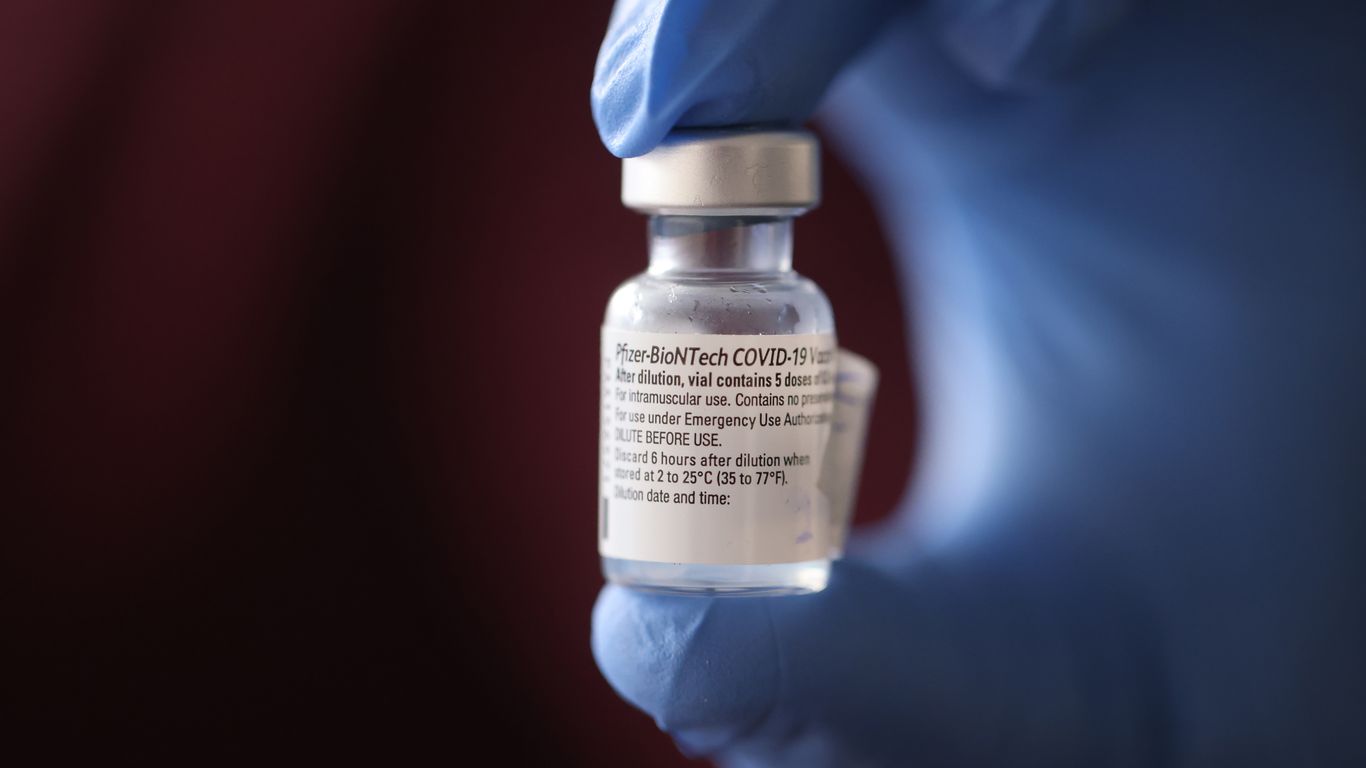
Pfizer said in a statement that “there is no data” to show that a single dose of its coronavirus vaccine will provide protection against the infection after 21 days.
Why it’s important: The UK announced on Wednesday that it would change its vaccination strategy “to give so many people in at-risk groups their first dose, instead of providing the two doses needed in the shortest possible time”. Some provinces in Canada do the same.
- Pfizer confirmed in response that, although some protection seems to have begun just 12 days after the first dose, two doses of the vaccine, three weeks apart, is the only regimen that has been shown to be 95% effective in phase 3 trials.
- “Everyone will receive their second dose and it will be within twelve weeks after the first,” the UK government added in a statement. “The second dose completes the course and is important for long-term protection.”
The big picture: Pfizer’s warning comes when many countries, including the U.S., are debating how to quickly deploy vaccines as effectively as possible. The United States is on the verge of falling well below its goal of vaccinating 20 million people by the end of 2020, with only 3 million single doses administered as of Wednesday night.